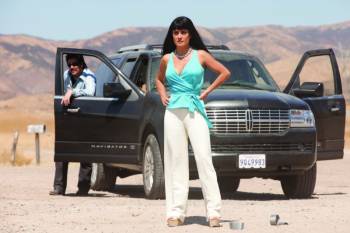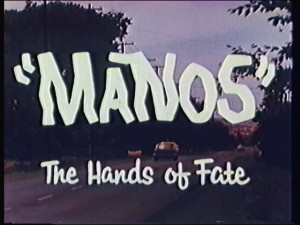Beasts of the Southern Wild
Posted on July 5, 2012 at 6:00 pm
A prize-winner at Cannes and Sundance, this near post-apocalyptic story of a father and daughter in a condemned part of Southern Louisiana is a stunningly assured debut by first-time feature director and co-writer Benh Zeitlen and extraordinary performances by a cast of non-professionals.
Six-year-old Hushpuppy (the mesmerizing Quvenzhané Wallis) and her father Wink (Dwight Henry, who owns a bakery in New Orleans) live in homes made from trash in a fictional community called The Bathtub. They do not have electricity, running water, or telephones, but Hushpuppy is happy and feels lucky to be there.
Zeitlen, the 29-year-old son of folklorists, makes this story exquisitely lyrical. It is poetic in tone and epic in scope. Seeing through Hushpuppy’s eyes makes it feel like a fairy tale because of the freshness of her conception of what is real and what is fantasy, what is strange and what is ordinary, what is scary and what is comfortable. Like Margaret O’Brien in the beginning of “Meet Me in St. Louis,” she introduces us to the community she loves. Like Alice, she brings us into a strange and enchanted world.
‘The Bathtub has more holidays than the whole rest of the world,” she tells us; while ordinary people in other places only have one or two holidays, they celebrate all the time. She is a part of a fiercely devoted community. We hear her repeat what she has been told and we see the contrast between what she is telling us and what we are able to understand. Her father’s hospital gown and the precariousness of their shelter signify nothing special to her, but we can tell it means that her father is very sick and the next big storm will flood The Bathtub. What we see as peril and deprivation, she sees as a place of myth and plenty. And she sees it as her home. For her, it is “the prettiest place on earth.” That is what she has been told and that is how it seems.
Later, when they are taken to a shelter, we see that through her eyes, too. For Hushpuppy, it is not a place of rescue and protection but a place of strangeness and sterility. Buses parked outside, ready to take displaced people from the exotic but familiar world of The Bathtub to strange-sounding far-away places like Des Moines seem institutional and predatory. Later, another possible rescue takes her to a part of the “civilized” world that again, we understand when Hushpuppy does not see how very dangerous it is.
Hushpuppy’s teacher points to the tattoo on her thigh to illustrate her stories about the aurochs, boar-like prehistoric beasts. The fable-like timelessness of the setting makes the era of the aurochs feel very close. When they appear, in a scene of breathtaking synthesis of myth and metaphor, Hushpuppy’s spirit seems to expand to fill all of the courage, resolve, and vision of the human spirit.
Zeitlen achieves a naturalness and state of wonder that is breathtaking to experience and one of the most impressive films of the year.


